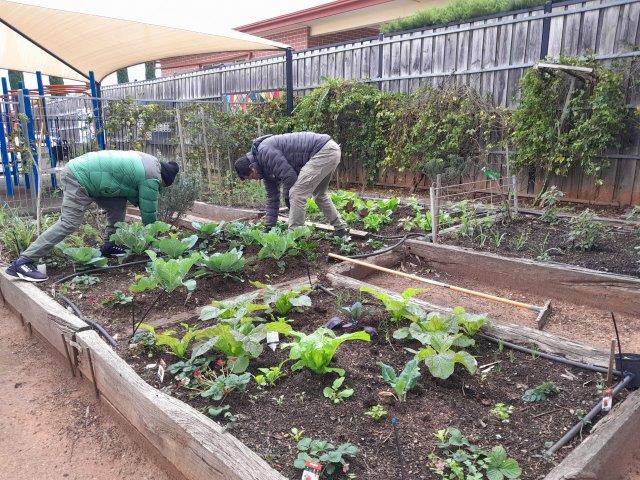This story reveals what is at the heart of our collaboration and sharing of information and spaces - to provide a collective impact to not just one person, but a whole community.
 Immigration can be hard, especially if the country you are from is culturally very different, and people don’t speak your language. A Bhutanese social group in the Northern suburbs of Adelaide found solace in a neglected community garden, turning it into a thriving space where they not only found connection to their community and a sense of belonging, but made a positive impact on that community too. This is their Community Connections story.
Immigration can be hard, especially if the country you are from is culturally very different, and people don’t speak your language. A Bhutanese social group in the Northern suburbs of Adelaide found solace in a neglected community garden, turning it into a thriving space where they not only found connection to their community and a sense of belonging, but made a positive impact on that community too. This is their Community Connections story.
When members from a Bhutanese social group at Community Access and Support SA mention that they miss growing their own food, it took more than one Community Connections partner to find a solution. But find one, they did.
Finding the right space
The group was introduced to the Salisbury East Neighbourhood House, where a neglected garden caught their eye. Pre-Covid the garden was tended to by residents from the adjoining Aged Care village.
It didn’t take long to get the group up and running with Flexible Funding support. Despite heat setbacks over the summer, the resilient group enlisted the help of Greening Australia to educate them about the different plant needs, seasons, planning times and more. Then they visited Joe’s Connected Garden where they learned about watering systems, the optimal location for different garden beds and plant care. The interpreters learned as much as the group did!
They worked on the garden as a group every Wednesday, while some came to water and to tend the plants on other days too. By Spring this year, the garden was flourishing!
True transformation
Tania Brown, formerly of Anglicare SA, visited the group in September to catch up and see the progress of their garden. She believes she has witnessed true transformation in the garden and in these people.
“The pride and joy we saw was a huge difference to the shy and uncertain group I had met in the beginning, with some making the interpreters job hard as they were eager to share their experiences and the impact it had on them personally and were talking over the top of one another excitedly,” she recalls.
“Some of the group members shared about how they now have a safe and valued space to come to. They feel far less isolated, like they have gained good knowledge and are successfully growing their own food at their homes, including beans, onions, spinach and potatoes.”
Tania describes the most impactful moment she had on the day, when one of the women, who had previously identified that she was experiencing depression, shared that the garden and the community “are better than tablets, better than medicine… I don’t need medicine for my depression”.
Says Tania: “The impact that a connection to a neglected space for isolated and vulnerable people in our community should never be undervalued. This is a true ‘good news story’ in the Community Connections Program.”

